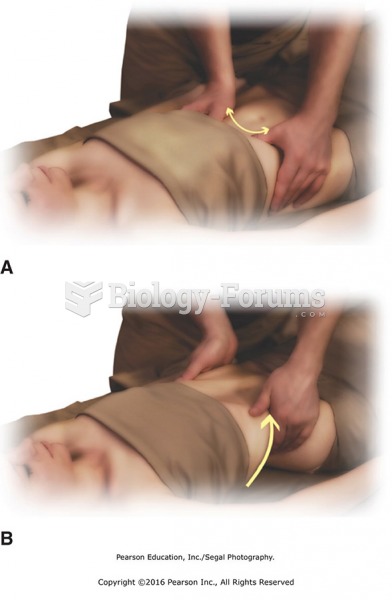|
|
|
Everyone has one nostril that is larger than the other.
Malaria mortality rates are falling. Increased malaria prevention and control measures have greatly improved these rates. Since 2000, malaria mortality rates have fallen globally by 60% among all age groups, and by 65% among children under age 5.
There are more sensory neurons in the tongue than in any other part of the body.
Looking at the sun may not only cause headache and distort your vision temporarily, but it can also cause permanent eye damage. Any exposure to sunlight adds to the cumulative effects of ultraviolet (UV) radiation on your eyes. UV exposure has been linked to eye disorders such as macular degeneration, solar retinitis, and corneal dystrophies.
People often find it difficult to accept the idea that bacteria can be beneficial and improve health. Lactic acid bacteria are good, and when eaten, these bacteria improve health and increase longevity. These bacteria included in foods such as yogurt.
 Pin the skin and subcutaneous fascia on a spot on the back using the thumb of one hand; place the ...
Pin the skin and subcutaneous fascia on a spot on the back using the thumb of one hand; place the ...
 Use friction to mobilize the entire scalp. Place the fingers on the scalp, and move the skin over ...
Use friction to mobilize the entire scalp. Place the fingers on the scalp, and move the skin over ...
 (A) Thumb slide along diaphragm, and lift around the waist. Place thumbs just under the rib cage, ...
(A) Thumb slide along diaphragm, and lift around the waist. Place thumbs just under the rib cage, ...




